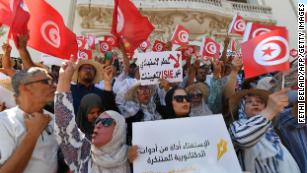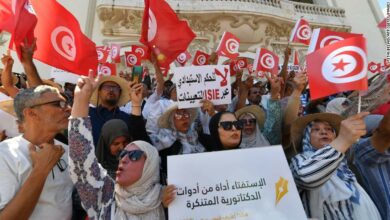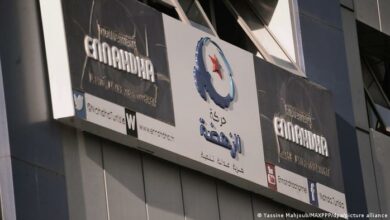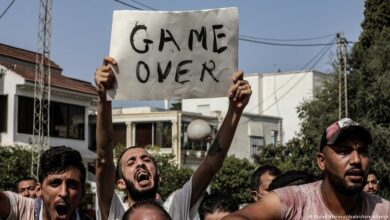Group of Eight leaders promised US$20 billion in aid to new Arab democracies on Friday when they met in France to endorse a program aimed at fostering changes sweeping North Africa and the Middle East.
Leaders were concluding their annual two-day summit with the launch of a partnership for the region that ties aid and development cash to progress on democracy and economic reforms by states which have thrown off autocratic rulers.
The G8 leaders, in the northern resort of Deauville for their annual summit, said they "strongly support the aspirations of the Arab Spring as well as those of the Iranian people."
"The changes under way in the Middle East and North Africa are historic and have the potential to open the door to the kind of transformation that occurred in Central and Eastern Europe after the fall of the Berlin Wall," the G8 planned to say in a statement, a copy which was obtained in advance by Reuters.
They said special development banks "could provide over US$20 billion, including 3.5 billion euros from the EIB, for Egypt and Tunisia for 2011-2013 in support of suitable reform efforts."
Britain on Thursday announced a 110 million pound (US$175 million) package to support the transition to democracy in countries like Tunisia and Egypt. The four-year program, funding out of existing budgets, will support greater political participation and strengthen the rule of law, officials said.
Prime ministers of Egypt and Tunisia were to meet the leaders of the G8's seven Western powers plus Russia on Friday to underscore their need for massive international support for economies knocked out of kilter by the popular uprisings against long-serving authoritarian leaders.
In a report to G8 leaders on Thursday, the International Monetary Fund said the external financing needs of oil-importing countries in the Middle East and North Africa would top US$160 billion over the next three years.
The IMF says it can provide around US$35 billion to help stabilize countries' economies but the bulk of financing will need to come from the international community.
The World Bank on Tuesday unveiled US$6 billion in new funding for Tunisia and Egypt, whose revolts have inspired popular uprisings in Yemen, Jordan, Morocco and Syria, and left Libyan leader Muammar Qadhafi fighting to stay in power. Demands for reform have also been heard from Morocco to Saudi Arabia.
G8 leaders demanded Qahdafi stop violence against civilians and said he would be held to account for alleged war crimes being investigated by the International Criminal Court.
"Qadhafi and the Libyan government have failed to fulfill their responsibility to protect the Libyan population and have lost all legitimacy. He has no future in a free, democratic Libya. He must go," the leaders said.
US President Barack Obama, speaking after talks with the summit host, French President Nicolas Sarkozy, said they were determined to stick with the NATO-led intervention in Libya until the crisis there is resolved.
"We agreed we have made progress on our Libya campaign but that meeting the UN mandate of civilian protection cannot be accomplished when Gaddafi remains in Libya, directing his forces in acts of aggression against the Libyan people," Obama said.
"We are joined in resolve to finish the job."
On Syria, the heads of state and government said they were "appalled" by the killing of peaceful protesters opposed to the rule of President Bashar al-Assad, and demanded authorities stop using force against them.
They also condemned violence against protestors seeking the removal of Yemen's President Ali Abdullah Saleh, and urged him to respect a pledge to stand down.
The world's crises forced their way on to the agenda of the Group, whose importance has diminished with the rise of emerging economies like China and India.
The G8 leaders, on Thursday discussed nuclear safety and the global economy, noting on Friday in their communique that the recovery was becoming more "self-sustained," although higher commodity prices were hampering further growth.
The pace of world growth could affect the amount countries, many of which are implementing austerity measures at home to rein in budget deficits and trim public debt, are willing to stump up to help the Arab World's emerging democracies.
The European Union executive said it had added just 1.24 billion euros of fresh grant funding to an existing program that aims to help its neighbors across the Mediterranean.
Diplomatic sources said the summit would also back the extension of the mandate of the European Bank for Reconstruction and Development into North Africa and the Middle East. The bank, created after the Cold War to help former Communist states become market economies, lends about 9 billion euros a year to projects anywhere from Croatia in central Europe to China.




